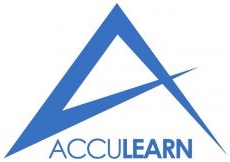Introduction
This intensive 10-day course gives a comprehensive overview of the principles and practices of management and leadership. It builds on the tenet that good management is the foundation of organisational success and progresses to consider the transitional skills and competencies that make great leaders. Central to the programme is the belief that we can all lead effectively through a reflection on our personal style and experiences aligned with a commitment engage those we lead. Communication, collaborative practice and customer focus, emerge as key themes but these are underpinned by the essential notion that successful practice requires passion and a commitment to people development.
This course will feature:
- Psychometric assessment of personal managerial and leadership style
- Productive and empowering leadership techniques for peak performance
- In-depth examination of the key issues of people leadership and organizational excellence, conflict
- “Managerial Leadership” a concept for career transition and progression
- Building a future personalized agenda for management and leadership excellence
Objectives
- Appraise their managerial/leadership style and its impact on others
- Employ a range of interpersonal skills to engage and empower
- Generate collaborate strategies for team and organisational improvement
- Select and apply innovative techniques for problem solving and continuous improvement
- Articulate the role of management and leadership in one’s business
Contents
Module 1: The Complete Course on Management Day One
The Foundation of Management
- Management demands courage
- The first step: managing self
- Employing the right management style ate right time
- Accepting responsibility
- Accentuating the positive
- Having the courage to turn your ideas into action
Day Two
Dealing with Workplace Conflict
- Defining organisational conflict
- Understanding the causes of conflict
- The Thomas-Kilman Conflict Mode Instrument
- Managing individual differences
- Managing conflict for productive outcomes
- The creative benefits of productive disagreement
Day Three
Managing Organisational Improvement
- Focusing on continuous improvement
- Diagnostic tools for organisational/team appraisal
- Organisational culture and its impact
- Overcoming and managing resistance to change
- Coping with risk and risk avoidance
- Measuring the success of improvement efforts
Day Four
Building and leading the motivated teams
- Characteristics of effective teams
- Characteristics of ineffective teams
- Managing the factors affecting team performance
- Empowering team development
- Utilizing team diversity
- Coaching to enhancing team competence
Day Five
Managing Problem-Solving activity
- Balancing analytical and creative thinking
- Effective use of mind mapping
- Capturing the power of brainstorming
- Unlocking team potential
- Treating problems as challenges
- Action planning for future improvement
Module 2: The Complete Course on Leadership Day Six
Leadership in a Dynamic, Global Environment
- Perceptions of Leadership
- Leadership is learning: the crucible experience
- Managerial leadership
- The leadership challenge: balancing strategy and culture
- Leadership in strategic thinking organisations
- Understanding the interrelated factors that impact change.
Day Seven
Leadership in Organisational Excellence
- Organisation type and leadership development
- Building cultures of organisational excellence
- Questioning the ‘status quo’: innovation or adaption?
- Role model leadership through personal execution
- Customer focused leadership
- Implementing a new culture: creating rich innovative pictures
Day Eight
The Communicating Leader
- Communication: the leaders essential tool
- Interpersonal, open communication is two-way
- Understanding how interpersonal communication preferences differ
- Communicating empowerment techniques in leadership
- Great leaders listen: active listening techniques
- Communicating and presenting with impact and passion
Day Nine
Leadership and Trusting Relationships
- Successful interpersonal interaction develops leaders with trust
- Characteristics of a leader’s interpersonal interaction
- Emotional intelligence: using emotions productively
- Individual strengths and challenges of each interpersonal styles
- Utilising diverse interaction styles productively
- Building the capacity for trust
Day Ten
Leadership Building the innovative responsive environment
- Building an environment of innovation and improvement
- Understanding problems inherent with change and transition
- Leading others through critical change initiatives
- Developing a personal change plan
- Leadership in action: a personal intuitive approach
- Leadership review of essential qualities



